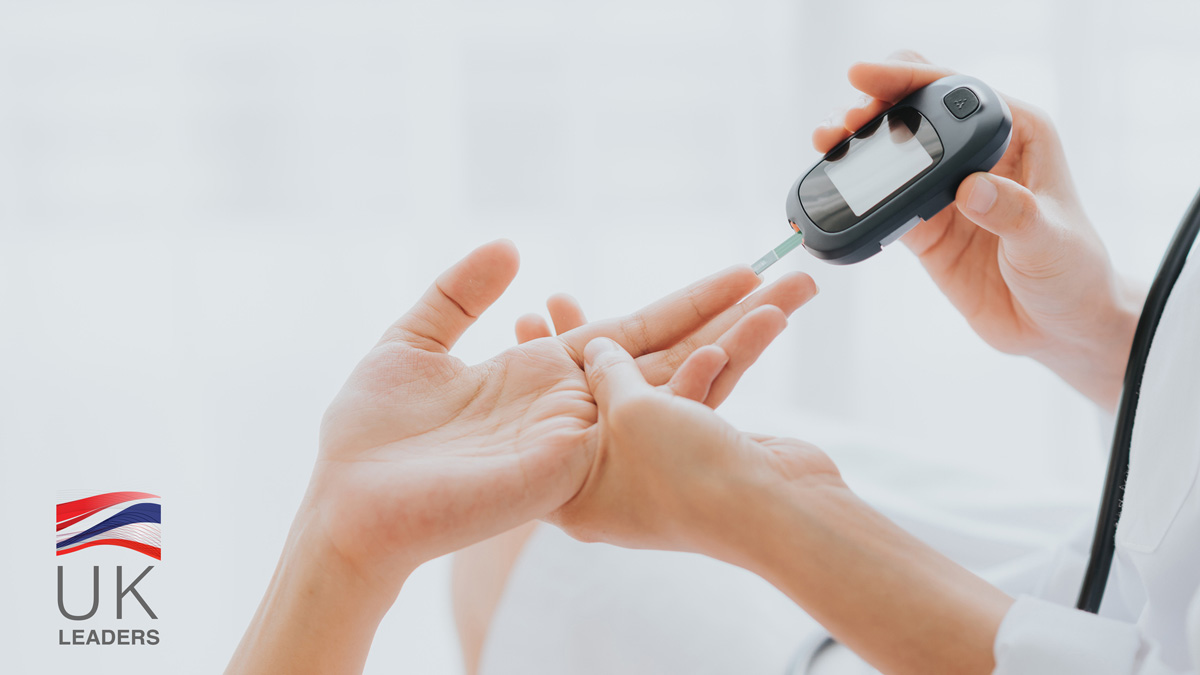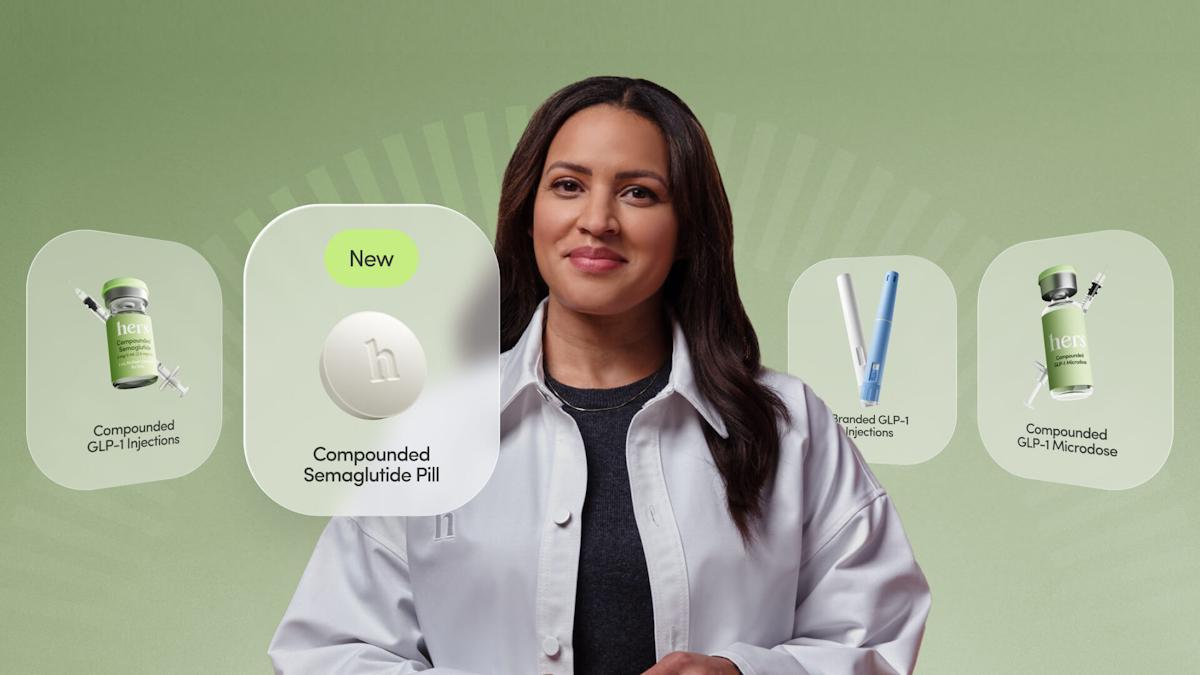Novo Nordisk: Prevention, digital tools and collaboration to define the future of diabetes

In our latest UK Leaders article Pinder Sahota, UK general manager at Novo Nordisk, tells us how he hopes to bring the NHS and pharma together to improve outcomes in diabetes and other long-term conditions.
Though Novo Nordisk is perhaps not as much of a household name as other pharma companies in the UK, it has a huge presence in diabetes, with a bigger market cap than the likes of GSK and AstraZeneca – and UK GM Pinder Sahota is keen to shout about the organisation that he describes as a “sleeping giant”.
“Danish culture is very humble, but there's a lot going for the company in terms of the culture, the way staff are treated, the profile of the company and the sense of purpose, so I’d love for more people to hear about us.
“Novo Nordisk is actually the only company I've worked at that regularly audits its culture. Every couple of years we’ll look at where we want it to be and whether we are achieving that.”
In particular, when coming into the company two and a half years ago, Sahota sought to build a culture that “liberates talented people to be able to work together to do great work”.
“There are more and more instances where pharma workers need to be multidisciplinary – so we want to enable fantastic teamwork as a core competency.
“We can use the NHS as an example – look at the multidisciplinary nature of surgical procedures, for instance; the way they have to work, the way they communicate, the way they get feedback, the way they audit their results. That’s what we want to inject into Novo Nordisk.”
Collaborating to prevent diabetes
Sahota says that these kinds of multidisciplinary teams are vital in order to propel projects forward and achieve the changes they want to see happen – which is particularly pertinent when diabetes and related conditions continue to have huge, unsustainable impacts on healthcare systems.
“These are massive societal burdens on countries,” says Sahota. “Whilst our treatments will help manage symptoms – and maybe one day offer a cure – we also recognise that these are unsustainable chronic conditions for society. If you want to be a sustainable company – not necessarily in terms of the environment, but in terms of what you do for your communities – then you need to focus on prevention as much as treatment.”
Sahota says that Novo Nordisk wants to take a “holistic view” on prevention.
“The solution to obesity isn't just ‘exercise more’. There are various triggers for why obesity happens, and more and more factors are starting to be understood. Some of it is lifestyle, some of it is emotional, some of it is genetic – which is why last January, the Royal College of Physicians recognised obesity as a disease.
“We need to understand those factors and de-stigmatise obesity, making sure we provide the right support to individuals who need it.”
The company is helming various prevention programmes, such as Cities Changing Diabetes – a global initiative where Novo Nordisk helps cities tackle the condition.
“We've got two such projects in the UK, in Leicester and Manchester,” says Sahota. “We bring together people from different parts of the city – everyone from the mayor to faith communities and sports clubs – to have a conversation around how we can stop the rise of diabetes in the city. How can they make people aware of the issue, access the right kind of facilities, eat the right kind of food? How can we get that message into communities? Those conversations weren't being had before.”
Sahota hopes that the company will be able to do more with these initiatives over time, as well as collaborating more with the NHS on obesity.
“We’d like to get to a point where our treatment and prevention offering can be packaged together – because both go hand in hand, alongside digital tools.”
Sahota sits on the ABPI board and leads one of the Association’s workstreams on engaging with the NHS on collaborations.
He says the UK industry is keen to foster large scale collaboration with the health system and overcome the barriers to partnership that some NHS customers face.
“If we can do this, then we can successfully improve outcomes for patients, and it’s a win-win all around. We're pushing that agenda, but I still think it's not going at the pace that we would like within the NHS.”
Sahota says that there are several approaches the industry can take to improve this.
“One is engaging at the highest level within the NHS to extoll the value of collaborating. We also believe it will help if we can put in place frameworks for how we can collaborate. In addition, it’s important that we tap into groups like the Academic Health Science Networks.”
He adds that the industry needs to think more “through the NHS' eyes”.
“For example, in the NHS Long Term Plan, chronic conditions are called out because aging populations tend to suffer from diseases that have co-morbidities. This is where the burden for the healthcare system is going to be as people grow older and live longer.
“The NHS has identified those issues, and if we look at it through their eyes we can focus and figure out how best to ease that burden. Then you can come up with optimal solutions – whether it's highly effective treatments, digital solutions, or prevention programmes.”
Sahota adds that the NHS’ willingness to engage with pharma is also improving.
“It's a lot better than it was 10 years ago,” he says. “Some of these collaborations have resulted in significant improvements for patients, and the NHS’ challenge has always been scaling that to bigger regional or national impact. For me, that pace of change isn't fast enough, but luckily through the ABPI I can have dialogue with NHS leaders about how we accelerate that.”
Digital tools
Sahota is also optimistic that the COVID-19 pandemic will ultimately boost adoption of the digital technologies that can be vital to improving outcomes in diabetes, saying that the crisis has “removed a lot of the cynicism and pre-conceived barriers” around such devices.
“The pandemic has shown everyone how we can work very differently. In the NHS, we are seeing more investment in telehealth. Six months ago, people would have said that telehealth had limited value and wasn’t going to take off, that you need to be able to physically see patients to really understand their conditions.
“The view now is that even post-COVID-19, the majority of consultations will probably be done remotely. Our industry needs to consider what we need to do to make our products, and our services, fit that type of consultation.”
This will also mean the industry needs to think about how HCPs will want to interact with pharma companies.
“If they're more comfortable doing virtual consultations with their patients, then maybe this is something our commercial teams need to be engaging in as well.
“That will fundamentally change the way we set up our commercial models, the role of our commercial teams, and the skills that they need to acquire – which is something that Novo Nordisk is working hard on.”
Sahota adds that if pharma is able to more easily connect with patients remotely, this would help improve remote diabetes management – which is becoming an increasingly important part of diabetes care for many patients.
“There are several examples of continuous glucose monitors that a patient wears – the most famous example being the FreeStyle Libre device that Theresa May uses. They sit on the skin, monitor glucose levels, and give the patient constant readings on their phone. And in some cases, HCPs could see those readings as well, if they have permission.”
Novo Nordisk is itself investing in such technology, and is aiming to introduce more connected devices, such as digital insulin pens, in the future.
“When the patient takes an insulin shot with this pen, the information gets downloaded to an app on the phone, which tells the patient when they took the dose, and what dose they took.
“There’s no need to fill out paper diaries, which are easy to forget about. Now the physician can view all of that remotely, then guide patients over the phone on what they're doing right or wrong.”
The other side to this, Sahota says, is thinking about how companies can provide more support so that patients can self-care at home as well.
“As aging populations, long-term conditions, and co-morbidities place a burden on the healthcare system, governments and health departments have to figure out how patients can self-care and manage at home. Digital tools and technology can support that.”
Again, the spectre of this burden is the main factor driving the NHS, Novo Nordisk and other pharma companies to innovate with a holistic, multi-disciplinary approach to treatment and prevention.
“As the NHS gets squeezed so will the healthcare industry,” Sahota says, “and that's where companies will have to work hard to show the value our treatments can offer – as well as what we are prepared to do in terms of collaborations to improve patient outcomes, NHS productivity, and prevention of long-term diseases.”
About the interviewee
 Pinder Sahota has been general manager and corporate vice president, United Kingdom, at Novo Nordisk since March 2018 with responsibility for all operations. Pinder is also a member of the European management team. Pinder brings extensive business, commercial and leadership experience to Novo Nordisk from a variety of senior UK and European roles. He was responsible for developing the commercial & market development strategy for key brands across Europe in his role as senior vice president of market and commercial development for Europe at Smith & Nephew based in Baar, Switzerland.
Pinder Sahota has been general manager and corporate vice president, United Kingdom, at Novo Nordisk since March 2018 with responsibility for all operations. Pinder is also a member of the European management team. Pinder brings extensive business, commercial and leadership experience to Novo Nordisk from a variety of senior UK and European roles. He was responsible for developing the commercial & market development strategy for key brands across Europe in his role as senior vice president of market and commercial development for Europe at Smith & Nephew based in Baar, Switzerland.











